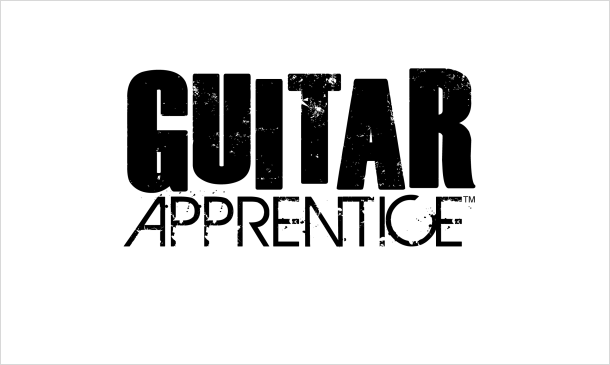Guitar Apprentice Has An Axe to Grind With Rocksmith

by Kira Grunenberg
Recession troubles still run amok. Industries across the world struggle to sustain employees, profits and morale. However, as has been confirmed in the past, the video game industry takes a lickin’ and keeps on kickin’.
Creativity and interactivity combine especially well on occasion, producing works that radiate much brighter than the average game. Interactive, serial titles like Dance Dance Revolution easily come to mind, followed closely by the “(Guitar) Hero” series and then the cunningly competing “Rock Band” series. These conceptual gems flourished in the seemingly invulnerable video game bubble, fusing two pop culture pastimes of music and gaming.
Two other interactive softwares following Guitar Hero and Rock Band’s suits are Guitar Apprentice and Rocksmith–products designed to deliver the same core result of people playing music on a real guitar, even if no prior experience exists. What’s interesting, is while the latter differentiates itself as a game rooted in reality (meaning the real guitar instead of a plastic controller) with the objectives of “learn[ing] while you play,” and “develop[ing] real skills,” the former utilizes real guitars but does the opposite; adamant on its website that “this is not a video game.”
Yet, if Guitar Apprentice had at least marketed itself as a game, albeit with an educational purpose, like Rocksmith, perhaps it would not be in the position of filing a lawsuit against Rocksmith’s developer, Ubisoft, effective as of this past Thursday. The lawsuit’s main claim, laid out by video game IP law site Patent Arcade, outlines alleged patent infringement on the part of Ubisoft, with the patent being for a “media system and method of progressive musical instruction.”
Guitar Apprentice and Rocksmith were released in August 2011 and September 2011 respectively, yet when one performs a common Google news search, Rocksmith yields far more coverage and press, dating long before, during and after their release than Apprentice. (Even when comparing the amount of social media approval via Facebook, Rocksmith exceeds Apprentice in page awareness by a whopping 215,690 user “Likes.”)
Rocksmith began availability on the PlayStation 3 and XBox 360 game consoles and is scheduled to migrate to computers at the end of next month, whereas Apprentice initially released for Windows and Mac OS’s and then DVDs but has not indicated any intention of moving to gaming consoles.
The validity of the suit aside for a moment, the reason I proposed that Apprentice choosing to market as a game would have eliminated the need for a suit, is because of the drastically different popularity levels I’ve just mentioned. If Apprentice had been at the forefront, with Rocksmith left in the dust, the ‘infringement’ may have still occurred, but the copying would have presumably had negligible backlash. Any ulterior motives not blatantly stated remain unknown but it will be interesting what legal ammunition each company brings to the judicial table.
Below are the promotional trailers for both games. In objective mechanics, they do seem alike… though I would argue just from the patent claim, that the “Method(s) of progressive musical instruction” between the two are hardly identical, as one advocates starting with playing single notes while the other shuns this idea.
What do you think?
Kira is an old school music nerd with a love for all things creative; always searching for music’s common ground. She graduated with an M.A. in Performing Arts Administration from New York University. Drop her a tweet @shadowmelody1





